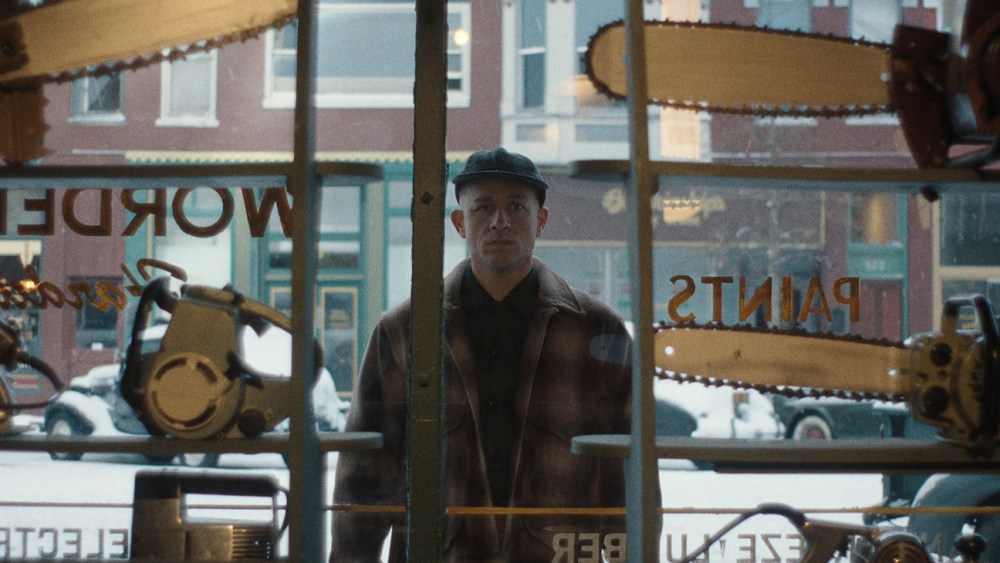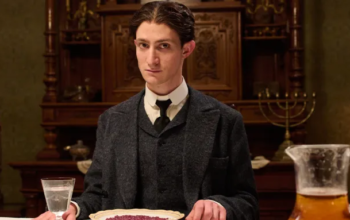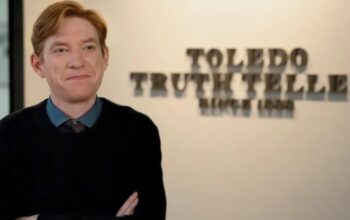It has already been announced that the next installment in Ryan Murphy and Ian Brennan‘s Monster franchise will focus on Lizzie Borden, following in the bloody footsteps of Jeffrey Dahmer and the Menendez brothers.
After marathoning eight episodes of Netflix’s Monster: The Ed Gein Story, the franchise’s first entry to be created and written entirely by Brennan, I’ll offer an intriguing alternative: Don’t.
Monster: The Ed Gein Story is awful, but its awfulness at least arises out of some level of thoroughly disjointed ambition. By the last two episodes, interminable dirges that had me yelling, “Why wouldn’t you just END?” at my television, Monster: The Ed Gein Story had offered something of a Grand Unified Theory of Serial Killers, with a thesis that posits Ed Gein as the ur-narrative at the heart of all serial killer chronicles, real and fictional.
The irony, according to Brennan, is that Gein, for all the times his story has been told and revised, was apparently just a meek, lovable, impressively buff man with one specified mental illness, several unspecified disabilities, some well-earned Mommy issues and a few unfortunate, but generally victimless, hobbies. The true monsters are the people inspired by Ed Gein, the future serial killers walking in his shadow, the storytellers who borrowed aspects of his life without insight or attribution and, worst of all, the people entertained by recountings of Gein’s life.
It’s a teetering narrative tower of ghouls built upon worse ghouls, in which the only people who aren’t ghouls are Gein and Brennan and Murphy — the latter two of whom have once again made a serial killer story about the ghoulishness of serial killer stories, with neither the interest nor the ability to reckon with how much their own careers have been built on one serial killer story after another.
I would say that it’s beyond my ability to comprehend how Brennan could have written the last two episodes of Monster: The Ed Gein Story and come away feeling like there was anything left for him to say in this genre — except that a key theme here is that everybody else who has ever told a serial killer story is doing it wrong and the Monster franchise is the only bastion of clear-eyed truth. They need to tell these stories because if they don’t, viewers will sate their appetites with “lesser” versions. The Monster franchise looks at itself as a public service.
Everybody is guilty and hypocritical and mendacious except for the producers of Monster and Netflix itself, a streamer that continues to happily churn out cut-rate serial killer docuseries and the Monster franchise that tell the audiences who devour these series that they’re grotesque. Netflix doesn’t even care about this internal contradiction or internecine rivalry, since in addition to Psycho, The Texas Chainsaw Massacre and The Silence of the Lambs, one of the “lesser” semi-fictionalizations that Monster: The Ed Gein Story exploitatively calls to task for being exploitative is Netflix’s very own Mindhunter.
Continuing the franchise’s defining of monsters as “Hunky white dudes who killed people and mostly lived in Wisconsin,” The Ed Gein Story begins in 1944 with our introduction to Ed (Charlie Hunnam), who enjoys masturbating in his mother’s (Laurie Metcalf) underwear, working around the family farm and scaring the girls down at the local pharmacy with his drowsy, lilting, intellectually hesitant voice. In that order.
The only person who understands Ed is Adeline Watkins (Suzanna Son), a woman of indeterminate age who is obsessed with the New York crime photographer known as Weegee and introduces Ed to concentration camp pictures, as well as pulp true crime magazines about Ilse Koch (Vicky Krieps), the notorious Nazi war criminal known as the Bitch of Buchenwald. That these pulp true crime magazines inflame Ed’s deviant desires allows Brennan to make facile accusations about the impact of true crime on susceptible fans and suggest that the series’ inaccurate and fetishistic recreations of Nazi atrocities are based on inaccurate and fetishistic pulp magazines rather than shoddy research.
I’ve been uncomfortable every time a Ryan Murphy production has attempted to integrate the Holocaust dating back to American Horror Story: Asylum and it would be my preference that this be a well he not return to. The Ed Gein Story makes the argument that just as Gein was motivated by the recent past, writers telling Gein’s story have used it to address the actual nightmares of the historical moment. That’s fair. What’s perplexing is that while we get a laundry list of the Vietnam barbarities that inspired Tobe Hooper (Will Brill) to spin Gein into Leatherface, Brennan and company don’t recreate the My Lai Massacre — but emaciated prisoners in striped uniforms are entirely fair play.









